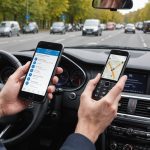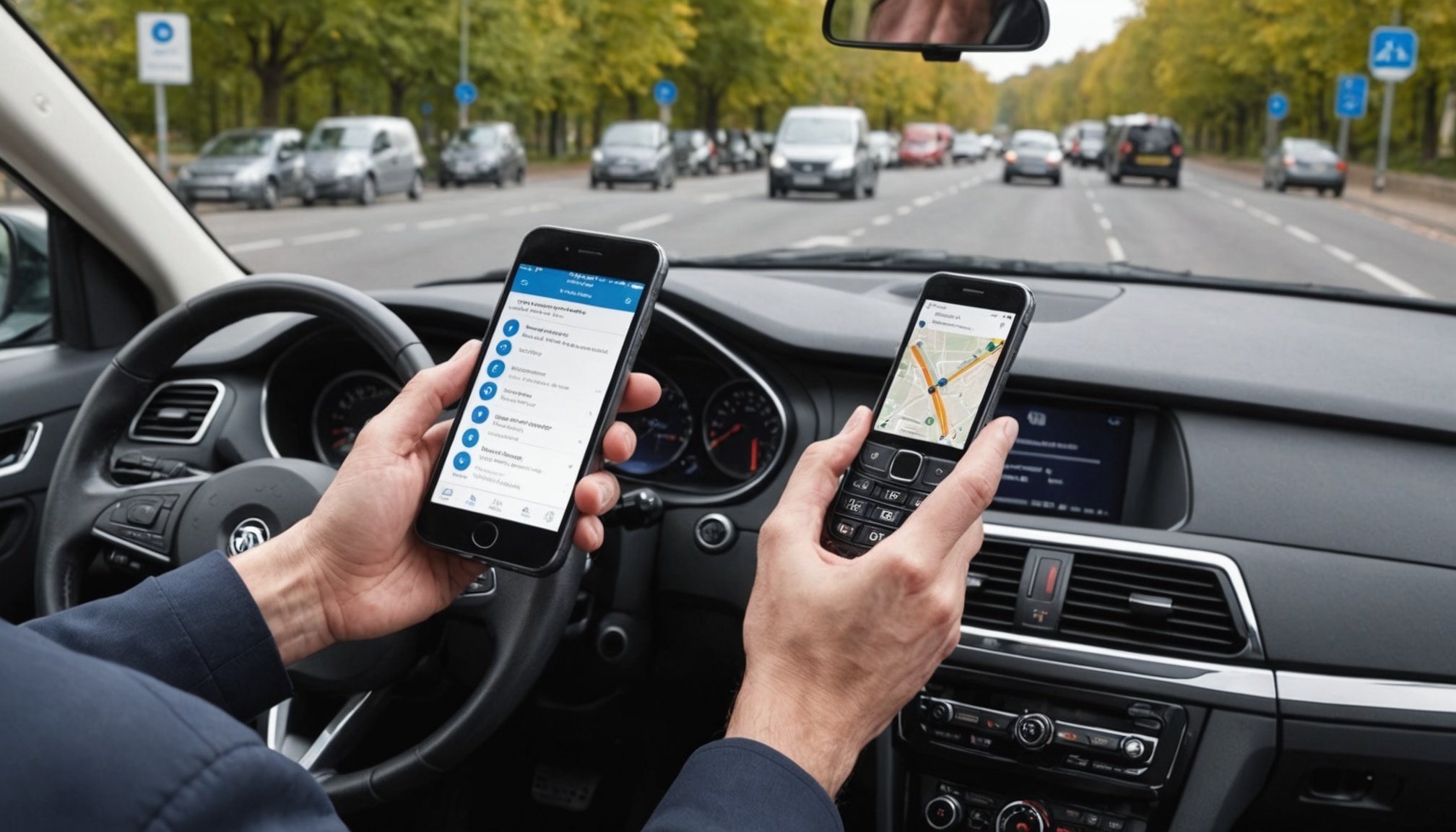The landscape of road traffic law is constantly evolving and it’s crucial for road users to stay abreast of these changes to ensure safety and legality. One area that has recently undergone significant change involves the use of mobile phones while driving. In this article, we shall delve deep into the new regulations, discussing what they mean for you as drivers and the potential consequences of non-compliance.
The Old Law VS The New Law
Until recently, the UK law only penalised drivers for making calls or sending texts while their vehicle was in motion. This was due to the fact that these were the main functions of mobile phones at the time the legislation was enacted.
This might interest you : How to find and install the best vehicle security system in the UK?
However, times have changed. Today, smartphones have evolved into multifunctional devices used for a host of activities — from navigation and music streaming to social media browsing and gaming. Recognising this shift, the law has been updated to reflect the current digital age.
The new law
The government has taken a step further to reinforce safety on the roads by expanding the range of prohibited activities when behind the wheel. Under the new law, it’s illegal to pick up and use a mobile phone or handheld device while driving, even if you’re stopped at traffic lights or queuing in traffic.
In the same genre : How to ensure your vehicle complies with noise regulations in urban UK areas?
The law applies to all drivers in England, Scotland and Wales and includes actions such as taking photos, scrolling through a playlist, or even playing games on your phone. The only exception is in emergencies where it’s unsafe or impractical to stop, for example, to call 999 or 112.
What are the penalties?
The consequences of breaking this law are quite severe, and there’s a good reason for that. The use of mobile phones while driving has been linked to a significant number of road accidents in the UK. Ensuring drivers keep their hands on the wheel and their eyes on the road is, therefore, a matter of public safety.
Drivers caught using a handheld device behind the wheel will receive six penalty points on their licence and a £200 fine. If you’ve passed your driving test in the last two years, you’ll lose your licence.
In addition to these immediate penalties, there could be long-term consequences. For example, your car insurance costs could rise significantly as insurers consider you a higher risk.
Hands-free Devices and Built-in Navigation Systems
The law recognises that technology is a part of modern driving. Therefore, it allows the use of hands-free devices, as long as they’re fully set up before you start your journey. Such devices include Bluetooth headsets, voice command, dashboard holders or mounts, windscreen mounts, and built-in satnavs or navigation apps.
However, if the police think you’re distracted and not in control of your vehicle you could still get stopped and penalised. It’s therefore important to ensure that even when using hands-free devices, your focus remains on the road.
The Role of Technology in Enforcing the Law
The new laws have also seen a technological push to ensure enforcement. Police forces across the UK have begun using innovative methods like "spotter cabs" — unmarked HGVs that allow police to see into vehicles and observe drivers’ behaviours.
There are also new mobile detection technology that can pick up on active phone signals within vehicles. These systems can’t differentiate between driver and passenger use yet, but they serve to remind drivers of the dangers of using phones at the wheel.
In summary, the new rules on mobile phone use while driving reflect the evolving nature of our relationship with technology. They recognise the increasing functionalities of smartphones, and the distractions they present when used behind the wheel. Penalties are steep and enforcement is stricter than ever, so it’s advisable to keep your phone out of reach while driving. Only in this way can we ensure the safety of all road users. Remember, when you’re behind the wheel, it’s not just about your life, but also the lives of others on the road.
The Impact on Fleet and Professional Drivers
The stringent new rules on mobile phone usage while driving significantly impact professional drivers who spend a large portion of their day on the road. Fleet drivers, for instance, frequently rely on mobile phones for sat nav guidance and fielding important calls from clients or managers. However, with these new regulations, their usual practices need to be adjusted to stay within the law.
Using a handheld mobile while driving now puts them at risk of receiving penalty points and a fine, detrimental to their professional reputation and potentially even their livelihood. It’s essential for fleet managers to update their drivers on these updated regulations and ensure they understand the implications of non-compliance.
Encouraging the use of hands-free phone devices and built-in navigation systems could be a beneficial preventative measure. These tools allow drivers to utilise their phones for necessary tasks without violating the law. However, drivers need to remember that even with these, their primary responsibility is to control their vehicle safely.
Professional drivers should also be aware that they might be more likely to encounter mobile detection technology and ‘spotter cabs’ due to their prolonged time on the road. With stricter enforcement and higher visibility, the risk of being caught violating the laws is substantial.
Conclusion: Road Safety and the Future
The introduction of the new mobile phone laws while driving in the UK signifies a critical step towards enhanced road safety. It considers the evolving use of smartphones and the potential distractions they bring while behind the wheel. The law serves as a stark reminder of the perils of multi-tasking while driving and emphasises the importance of focusing on the road.
There is little doubt that mobile technology will continue to evolve, and with it, the nature of distractions while driving. Therefore, it’s likely that regulations will continue to adapt and change in response to these challenges.
The increasing use of technology to enforce these laws, such as mobile detection systems and unmarked ‘spotter cabs’, highlights the serious approach authorities are taking to curb this dangerous behaviour. However, technology is not just a tool for enforcement; it also provides solutions, such as hands-free devices and built-in sat nav systems that can help drivers to abide by the law and stay safe on the roads.
To avoid the steep penalties, a potential rise in car insurance costs, and most importantly, to ensure the safety of all road users, all drivers are strongly advised to put their phones aside while driving. It’s a small change in habit that could have significant implications for personal and public safety. Remember, when you’re behind the wheel, using a phone isn’t worth the risk.











